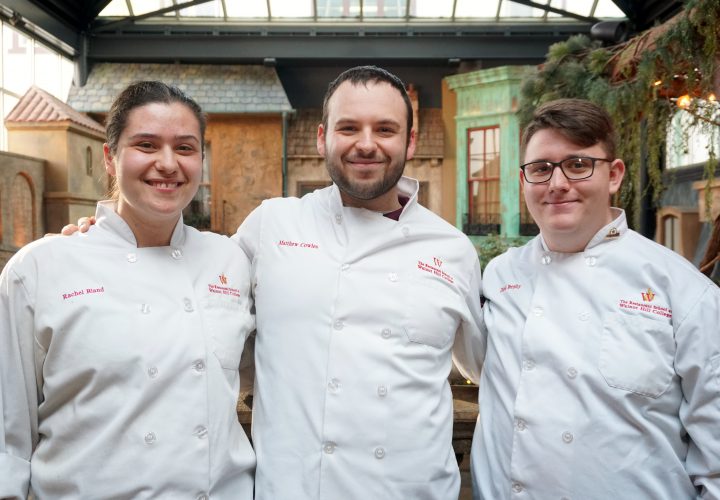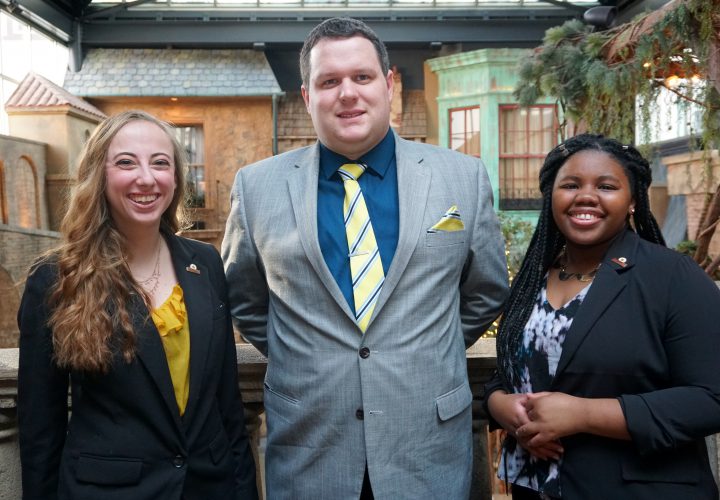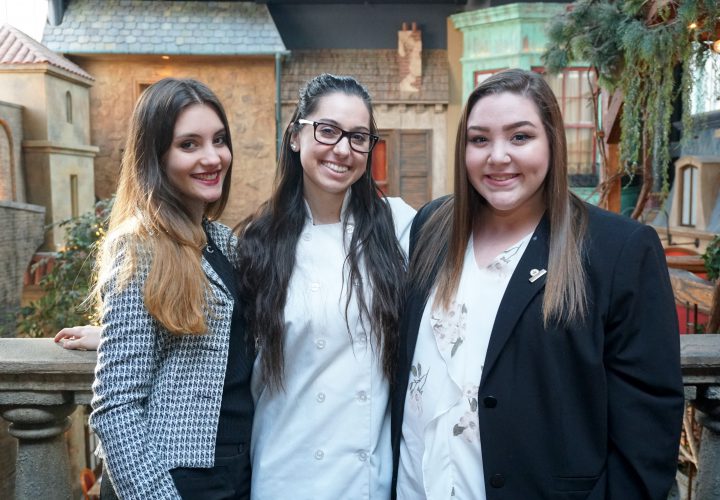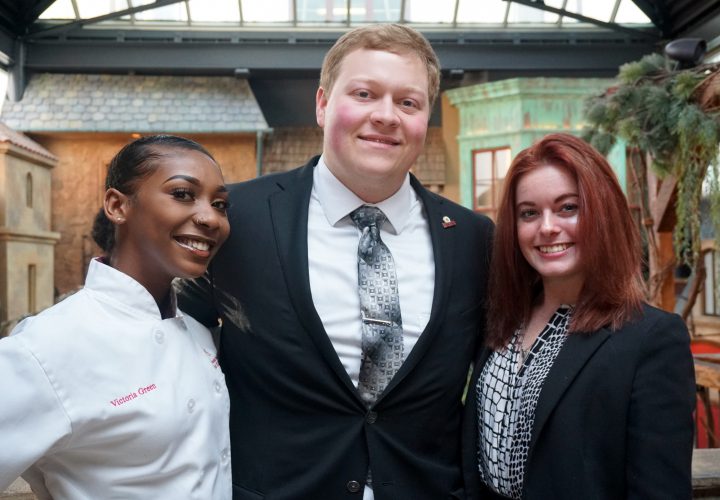What is it like to have your associate degree?
By Carli Caroselli and Jasmine Harmon

Graduating with your associate degree is one of the best feelings in the world. I know that sounds cliché, but it’s absolutely true. All of those late nights in restaurant operations, early mornings in breakfast production, and countless hours in the kitchen finally came to fruition in the form of a degree. Seeing my name in that scrawling script on that fabled piece of paper made me feel amazing, but seeing the pride that my family felt during my graduation was absolutely priceless. I don’t think I have ever seen my dad smile as much as he did on that day. This only pushes me even further in the pursuit of my bachelor’s degree, because I received a glimpse of the pure elation and pride I would feel. This is a feeling I hope everyone has a chance to experience. I hope I never forget how truly happy I felt at that moment, and I cannot wait to feel that happiness again when I graduate with my bachelor’s degree!
-Carli Caroselli, Student Leader
Culinary Arts, Class of July 2019
I graduated with my Associate of Science in Restaurant Management on March 12, 2017. Graduating a year and a half after starting the program was a little weird at first since most of my high school friends who started college at the same time were just beginning to dive into their field of choice. However, it makes sense since Walnut Hill College enrolls its students in a fast-paced yet focused learning program. I learned so much in my first year and a half here at Walnut Hill College, from how to provide tangible and intangible service to guests to how to put together and run large luncheons for a hundred people with limited space and time.
Having an associate degree has opened so many doors to help better my life and career. That accomplishment has made my family proud. When I go to family reunions and catch up with relatives I haven’t seen in a while, I tell them a bunch of the stories from my time in college and there is always something that surprises them. Another benefit that having an associate degree has brought me is that I have been able to get in contact with employers from upscale establishments to start new jobs. In some cases, there could be many people applying for the same position, but just having the words “associate degree” on your résumé speeds up the process for you and your employer, and the chances of you getting into an establishment increase greatly. I decided to stay for the bachelor program and can’t wait to use what I’ve learned in both programs in my daily life and career!
-Jasmine Harmon, Student Leader
Restaurant Management, Class of July 2018




